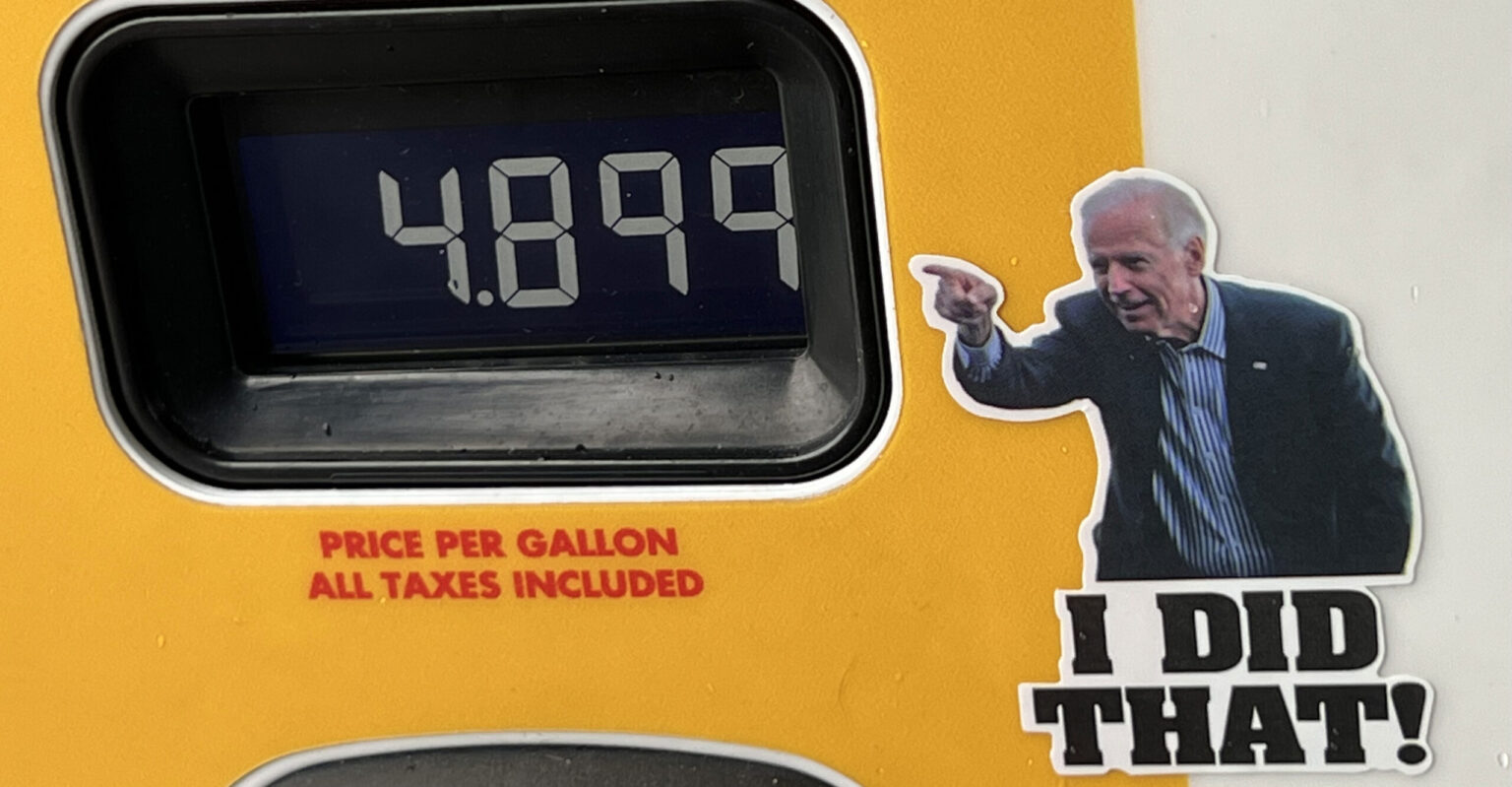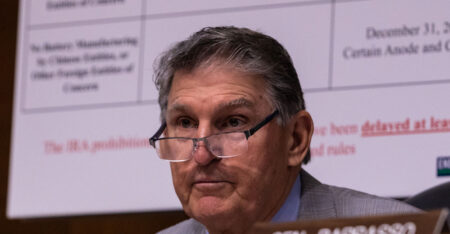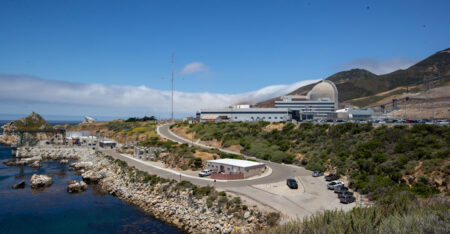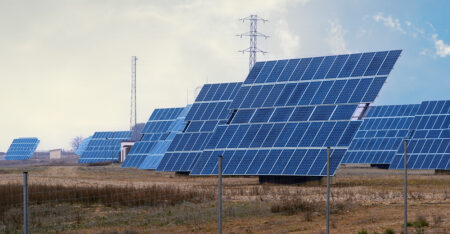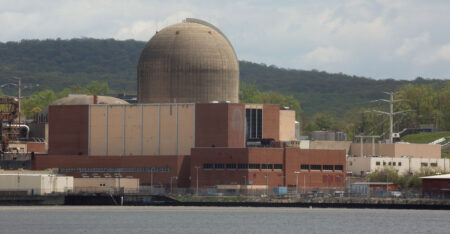With the Russia-Ukraine war and the Hamas terrorist attack on Israel underscoring the urgent need for renewed U.S. oil and gas development, now would be a good time for President Joe Biden to rethink his opposition to fossil fuels, an energy and environmental policy analyst says.
“These events give President Biden the perfect opportunity to pivot from his current position of his war on fossil fuels and say, ‘The facts have changed. We are now going to speed up [oil and gas] leases. We’re going to speed up pipeline production. We are going to allow companies to invest in oil and natural gas,’” Diana Furchtgott-Roth, director of the Center for Energy, Climate and Environment at The Heritage Foundation, said at a Nov. 7 panel discussion held as part of a TransAtlantic Energy Conference that brought together European and American representatives. (The Daily Signal is the news outlet of The Heritage Foundation.)
Heritage served as co-sponsor of the conference, along with the Warsaw Institute and the Climate Policy Institute.
A panel discussion held as part of a Transatlantic Energy Conference brought together European and American representatives at The Heritage Foundation in Washington on Nov. 7. (Photo: Erin Granzow for The Daily Signal)
The nexus between energy independence and global security was one of the overarching themes of the conference, as was the role of renewable energy in ongoing efforts to reduce carbon dioxide emissions.
Furchtgott-Roth also encouraged Biden to tout America’s progress in creating a clean environment. Because the U.S. has made efficient use of “clean natural gas” over the past 15 years, the nation’s carbon dioxide emissions have decreased “by 1,000 million metric tons,” she explained, adding that U.S. emissions could be reduced even further if more nuclear energy were part of the mix.
Other speakers addressed the need for European nations to become less reliant on oil and gas from Russia while developing their own domestic resources. Liliana Smiech, president of the Warsaw Institute, a think tank in Poland, views energy independence as a realistic goal for European countries willing to adjust their policies.
“We should stop importing so many fossil fuels from abroad,” she said. “96% of oil in the European Union is being imported. If we are not paying money to Russian oligarchs, we are paying the money to oil sheiks.”
Smiech also expressed concern about the impact of Europe’s new Carbon Border Adjustment Mechanism. She said that the additional costs from the tax undercut Poland’s ability to maximize its coal resources, while also making it more difficult for other nations from inside and outside the European Union to sell and trade with Poland.
On the upside, Smiech sees strong potential for domestic nuclear energy development that could help replace less reliable energy sources.
During a question-and-answer session, Radovan Javorcik, the ambassador of the Slovak Republic to the U.S., warned about the disruptive impact tax credits for renewables have on free trade between Europe and the U.S. Government subsidies for favored industries work to the disadvantage of European and American consumers, he told The Daily Signal.
“I favor a level playing field,” he said.
Furchtgott-Roth credited Slovakia for pursuing sensible policies. She explained how Austria is “full” of unsightly wind farms while Slovakia, by contrast, has a beautiful countryside.
As European policymakers work to free themselves from reliance on hostile oil and gas suppliers, such as Russia, it will be important for them to distinguish between energy independence and “energy isolation,” said Sara Vakhshouri, president of SVB Energy International. The goal is not to produce “100 percent of the molecules for energy at home,” but to create a “diversification of resources,” so countries are not dependent on any one source, she said.
SVB Energy International is an energy consulting firm with offices in Washington and Dubai.
Landlocked countries have their own special challenges, said Peter Pal Schmitt, a representative from Hungary to the United States, highlighting the need for U.S. leadership. The liquified natural gas terminal the U.S. helped to establish in Croatia in 2021 marked a critical turning point, Schmitt said. “In fact, we call it the D-Day of energy security,” he continued, because that’s when “LNG from the United States and other countries started to arrive at the shores of Croatia.”
In many ways, the U.S. sits in a “fortuitous position” because it can draw from a “robust base” of natural resources, said Landon Derentz, a senior director for global energy security with the Atlantic Council, an international affairs think tank.
“There’s utility in the idea of domestic production and reliance on indigenous resources,” while also avoiding scenarios that translate into “energy insecurity” and dependency on less trustworthy partners, he said.
On the subject of renewable energy, Lucian Pugliaresi, president of the Energy Policy Research Foundation, a Washington-based nonprofit that examines the economics of energy, expects that market forces will come to bear if the political class insists on pushing energy schemes that are expensive and unreliable.
“The public will become completely dissatisfied,” Pugliaresi said.
He also cited figures from utilities that show between 2010 and 2022 there was a 64% increase in power outages. While the outages cannot be blamed entirely on renewables, they do suggest that policymakers are overlooking “fundamental processes,” he said.
Jack Spencer, an energy policy analyst with The Heritage Foundation, concurred.
“The whole idea of an energy transition is a made-up narrative that politicians and special interests have put out there,” he said. “You can ignore Adam Smith’s hand, but eventually it will punch you square in the face.” That’s a reference to the 18th-century Scottish political economist’s thesis of the “invisible hand” of free market economics.
Unfortunately, government officials are not very adept at cost-benefit analysis, Pugliaresi said.
“What is the problem we are trying to solve?” he asked. “Is it [carbon dioxide] emissions?”
If so, then policymakers are not pursuing their goals of lower emissions in an efficient manner, Pugliaresi lamented, adding:
If you brought a bunch of engineers from Mars, and stuck them in a room for 10 minutes and said [to them] what should we do about this, they would not pick the most expensive strategy to solve this problem.
Have an opinion about this article? To sound off, please email letters@DailySignal.com, and we’ll consider publishing your edited remarks in our regular “We Hear You” feature. Remember to include the URL or headline of the article plus your name and town and/or state.
Read the full article here





